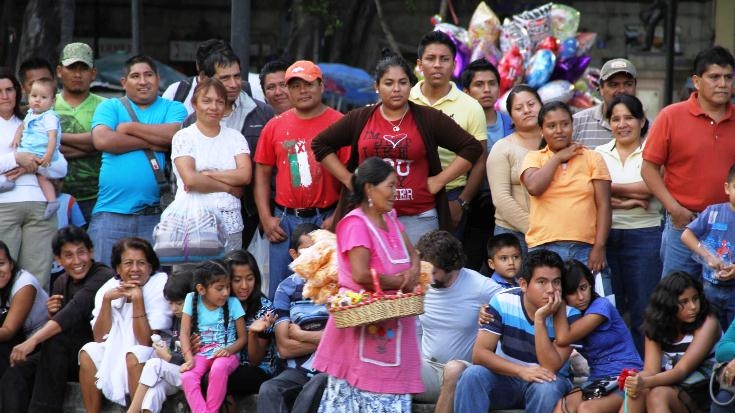To improve social prosperity and alleviate poverty, Mexico needs to promote labor markets and an integrated social protection system. The objective should be to increase wages through productivity growth and move toward a more efficient, effective, and integrated social protection system that will protect people from unexpected welfare losses, including those related to violence.
Promoting labor markets for inclusive growth
The challenge:
A crucial ingredient to alleviating poverty and promoting shared prosperity is higher wages through greater labor force productivity. Although wages grew slowly over the past 20 years, the economic crisis of 2009 reversed the gains; since then, Mexico has had difficulty regaining the wage growth. The related slow growth in labor income, the largest source of income for families, has not translated into poverty reduction and has limited shared prosperity.
Measures to increase labor productivity may work through three channels: regulations, skills, and employment services.
A multi-year program of lending, knowledge, and convening services has supported the labor productivity agenda.
- Lending activities included the Compensatory Education Project, which supports the Consejo Nacional de Fomento Educativo (CONAFE) to expand quality early childhood development services to the most marginalized municipalities in Mexico
- The second phase of an Adaptable Program Loan (APL)[i] for the Quality Schools Project (PEC).
These were accompanied by a richly laden program, including activities such as evaluating the impact of Mexico's teacher training program on student outcomes;
- An impact evaluation of an ECD program targeted at poor children living in marginalized areas;
- An evaluation of the school-based management models;
- An analysis of the gap between the supply and demand for skills, both nationally and in the State of Oaxaca.
